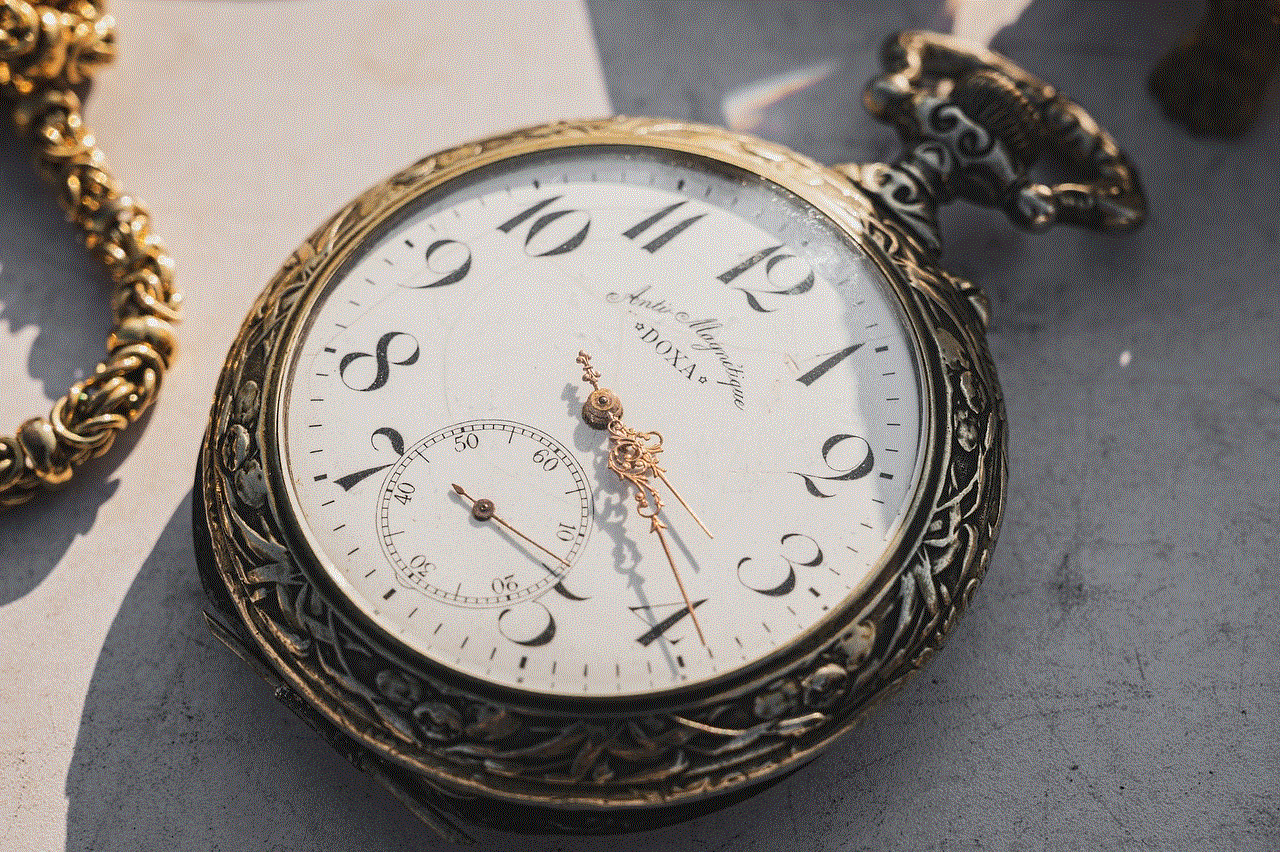boyfriends instagram explore page
The Instagram Explore page is a feature that allows users to discover new content and accounts that align with their interests. It is a highly personalized section of the app that curates posts, stories, and reels based on the user’s activity, including the people they follow, the posts they like, and the hashtags they interact with. Recently, the Explore page has become a popular topic of discussion, especially among young adults and teenagers. In particular, the “boyfriends” section of the Explore page has caught the attention of many users. In this article, we will delve deeper into the world of the “boyfriends” Instagram Explore page and explore its impact on relationships, social media, and society as a whole.
First and foremost, it is essential to understand what the “boyfriends” Instagram Explore page is all about. As the name suggests, it is a section of the Explore page that displays posts and accounts related to boyfriends, relationships, and couples. This includes photos of couples, romantic quotes, relationship advice, and even sponsored posts from brands that cater to couples. This section has become a go-to for many users, especially those who are in relationships or interested in romantic content. The “boyfriends” Explore page has gained immense popularity, with millions of users scrolling through it every day. But what exactly makes this section so enticing? Let’s find out.
One of the primary reasons why the “boyfriends” Explore page has become so popular is its relatability. Almost everyone has been in a relationship or has at least been interested in one. As a result, the content on this section is highly relatable to a vast majority of users. From cute couple photos to funny relationship memes, there is something for everyone on this page. It allows users to see what other couples are doing, get inspiration for their own relationships, and simply enjoy the content without feeling left out. In a world where social media can often make people feel inadequate, the “boyfriends” Explore page provides a sense of belonging and inclusivity.
Furthermore, the “boyfriends” Explore page has also become a source of entertainment for many users. With its endless scroll of attractive couples, romantic gestures, and adorable pets, it is easy to get lost in this section for hours. It offers a break from the mundane and often stressful content that dominates the rest of the app. Users can simply sit back, relax, and enjoy the fantasy world of perfect relationships and grand gestures. However, it is crucial to remember that this is only a highlight reel and not an accurate representation of real-life relationships.
On the other hand, the “boyfriends” Explore page has also received its fair share of criticism. Many argue that it perpetuates the unrealistic and often unattainable standards of relationships. The curated content is carefully selected to present an idealized version of love, which can lead to feelings of inadequacy and comparison among users. It can also create a false sense of what makes a healthy and happy relationship, leading to unrealistic expectations and disappointment in real-life relationships. Moreover, the “boyfriends” Explore page primarily features heterosexual relationships, which can be exclusionary and harmful to the LGBTQ+ community.
Another concern with the “boyfriends” Explore page is its impact on mental health. Social media, in general, has been linked to increased rates of anxiety, depression, and body image issues among users. The “boyfriends” Explore page, with its focus on physical appearance and perfection, can further exacerbate these issues. It can also create an unhealthy obsession with relationships and the need to constantly compare one’s own relationship with those on the page. In extreme cases, it can lead to feelings of inadequacy and self-doubt, which can take a toll on one’s mental well-being.
Moreover, the “boyfriends” Explore page has also raised concerns about privacy and consent. Many of the posts and accounts featured on this section are from private accounts, and their content is being shared without their knowledge or permission. This not only violates the privacy of these individuals but also raises ethical questions about the use of personal information for profit. It is essential for users to be aware of the boundaries and always seek consent before sharing someone else’s content.
Despite the criticism, the “boyfriends” Explore page continues to be a popular section of Instagram, and it is not going away anytime soon. As with any social media platform, it is vital for users to be aware of the potential drawbacks and use the app mindfully. It is crucial to remember that the content on this page is not a representation of real-life relationships and to not compare one’s own relationship with those on the page. Instead, it can be used as a source of inspiration and entertainment, but with a critical eye.
In conclusion, the “boyfriends” Instagram Explore page has become a significant part of the app, with millions of users scrolling through it every day. It offers a sense of belonging, entertainment, and inspiration for many, but it is not without its flaws. While it can be a fun and enjoyable section of the app, it is essential to use it mindfully and be aware of its potential impact on mental health, privacy, and social expectations. As with any social media, moderation and a critical eye are crucial to maintaining a healthy relationship with the app and with oneself.
so cool meaning
The phrase “so cool” has become a common slang term used to express admiration, excitement, or approval. It can be used to describe a person, an object, an event, or even a feeling. But where did this phrase originate and how has it evolved over time? In this article, we will delve into the meaning of “so cool” and its impact on modern language and culture.
The term “cool” has been around for decades, with its origins traced back to the 1930s. It was initially used to describe someone who was calm, confident, and in control. Jazz musicians in the 1940s and 1950s popularized the term, using it to describe a particular style of music that was smooth, relaxed, and sophisticated. But it wasn’t until the 1960s that “cool” became a mainstream term, thanks to the rise of the counterculture movement and the influence of icons like James Dean and Elvis Presley.
Fast forward to the present day, and “cool” has taken on a whole new meaning. It has become a catch-all phrase that is used to describe anything that is trendy, popular, or desirable. And when we add the intensifier “so” before “cool,” it elevates the term to a whole new level. It is no longer just a casual compliment but a statement of extreme admiration. Saying something is “so cool” is like saying it is the epitome of coolness.
But what exactly is coolness? It is a concept that is difficult to define as it can mean different things to different people. For some, it may be associated with a rebellious attitude or a nonchalant demeanor. For others, it may be linked to a sense of style or an air of mystery. But one thing is for sure; being cool is seen as a desirable trait that many strive to achieve.
In today’s society, being cool is often associated with being popular and well-liked. We see this in the media, where celebrities and influencers are often labeled as cool based on their social status and the number of followers they have. This has led to the rise of “cool hunting,” where companies and marketers try to tap into the latest trends and capitalize on what is deemed cool by the masses.
But while being cool may seem like a desirable trait, it can also have negative connotations. The pressure to be cool can lead to people trying too hard, losing their authenticity, and ultimately becoming uncool. In a world where social media and instant gratification reign, the quest for coolness can also lead to a constant need for validation and comparison, which can be detrimental to one’s mental health.
So what does it mean when we say something is “so cool”? It could mean that it is trendy, fashionable, or innovative. It could also indicate that it is impressive, unique, or awe-inspiring. But more importantly, it shows that the speaker is genuinely excited and enthusiastic about whatever they are describing. It is a way to express admiration and appreciation for something or someone.
The phrase “so cool” has also become a staple in everyday conversations, especially among younger generations. It has become a way to acknowledge and validate someone’s interests or opinions. For example, if a friend tells you about a new movie they want to watch, you might respond with “That sounds so cool!” It is a way to show interest and support without having to say too much.
In recent years, “so cool” has also taken on a new meaning in the digital world. The rise of social media and influencer culture has led to a new use of this phrase. It is often seen in comments and captions on Instagram, accompanied by the fire or heart emojis. It is a way to express approval and admiration for someone’s post or content. And with the rise of memes and internet slang, “so cool” has also become a popular reaction to something funny or relatable, often accompanied by the laughing emoji.
But why do we use “so cool” instead of just “cool”? The use of intensifiers, such as “so,” is common in slang and informal language. It adds emphasis and emotion to a statement, making it more impactful. It also shows that the speaker is genuinely excited or impressed by what they are describing. Saying something is “cool” may come across as neutral or unenthusiastic, whereas saying it is “so cool” conveys a more positive and enthusiastic tone.
In conclusion, “so cool” is a phrase that has evolved over time, from its origins in jazz music to its widespread use in modern language and culture. It is a term that is used to express admiration, excitement, and approval, and has become a staple in everyday conversations. While it may seem like a simple phrase, “so cool” carries with it a sense of admiration and enthusiasm that reflects our desire to be seen as trendy and desirable in today’s society. But as with any slang term, its usage is ever-changing, and only time will tell how it will continue to evolve in the future.
you guys meaning



When we say “you guys,” it’s often used as a colloquial term to address a group of people. It’s a phrase that is used in everyday conversation, whether among friends, coworkers, or acquaintances. It’s a simple phrase that holds a lot of meaning and can be interpreted in various ways.
Origin of the Phrase
The exact origin of the phrase “you guys” is unknown, but it is believed to have originated in the 19th century in the United States. The phrase was first used in the context of referring to a group of individuals, regardless of gender. It was initially used in the military as a way to address a group of soldiers.
Over time, the phrase became more widely used and was adopted in everyday conversations. It was often used to address a group of men or a mixed-gender group, and the term “you girls” was used to address a group of women.
However, with the rise of gender equality, the phrase “you guys” has become more gender-neutral. It is now commonly used to address a group of people of any gender, and the phrase “you girls” is rarely used.
Different Interpretations
The phrase “you guys” has evolved to have various interpretations, depending on the context and the tone in which it is used.
In some cases, it can be a friendly and inclusive way to address a group of people. It can be used among friends or colleagues, as a way to show camaraderie and familiarity. In this context, it is often used as a term of endearment and can create a sense of belonging within a group.
On the other hand, in a more formal setting, the phrase “you guys” can be seen as informal and unprofessional. It can be perceived as disrespectful or dismissive, especially when used in a workplace setting. In this context, it is best to use more inclusive terms such as “everyone” or “team” to address a group of people.
The phrase can also be used in a gender-specific context, where it is seen as a way to exclude women. Some argue that the term “guys” refers to men, and using it to refer to a group of people can be seen as gender-biased. In this context, the phrase can be seen as offensive and exclusionary.
However, others argue that the phrase has evolved to become gender-neutral and is now used to address a group of people of any gender. It has become a part of everyday language, and most people do not perceive it as a gender-specific term. In fact, some women even use the phrase to refer to their female friends, without any negative connotations.
Impact on Language and Society



The widespread use of the phrase “you guys” has had a significant impact on language and society. It has become a part of everyday vocabulary, and its use has become so common that it often goes unnoticed.
From a linguistic perspective, the phrase has become a colloquial term that is used in informal conversations. It has also become a part of popular culture, with the phrase being used in movies, TV shows, and songs. Its use has also extended to social media, where it is used as a way to address a group of people in online conversations.
However, the phrase has also sparked debates on gender equality and inclusivity. Some argue that the use of the phrase perpetuates gender stereotypes and reinforces the idea that men are the default gender. It can also make women feel excluded and marginalized in certain settings.
On the other hand, others argue that the phrase has become a part of everyday language and is no longer seen as gender-specific. It is now used to refer to a group of people of any gender, and its use has become a part of modern language.
In terms of society, the phrase can also have an impact on how people perceive themselves and others. Its use can create a sense of belonging and camaraderie within a group, but it can also reinforce gender stereotypes and make individuals feel excluded.
Alternatives to “You Guys”
As the phrase “you guys” continues to spark debates and discussions, many people have started to look for alternative ways to address a group of people. Some of the most commonly used alternatives include:
– Y’all: This is a contraction of “you all” and is commonly used in the Southern United States. It is a gender-neutral term and is often used to address a group of people in a casual setting.
– Folks: This is a more formal way to address a group of people and is often used in professional settings. It can be used to refer to a group of people of any gender.
– Friends/peeps: These are more informal terms that are often used among friends or in a casual setting. They can be used to refer to a group of people of any gender.
– Team/colleagues: These terms are often used in a workplace setting and are more inclusive than “you guys.” They can refer to a group of people working together, regardless of gender.
– Everyone: This is a gender-neutral term that can be used to address a group of people in any setting.
Conclusion
In conclusion, the phrase “you guys” has a long history and has evolved to have various interpretations. While it is commonly used as a gender-neutral term to address a group of people, it has also sparked debates on gender equality and inclusivity.



Its impact on language and society cannot be ignored, and as language continues to evolve, it is essential to be mindful of the words we use and how they can affect others. As individuals, we can choose to use alternative terms to address a group of people, depending on the context and the tone of the conversation.
Ultimately, the phrase “you guys” will continue to hold different meanings for different people, and its use will continue to be debated. However, what remains important is to be respectful and inclusive in our communication, regardless of the words we use.